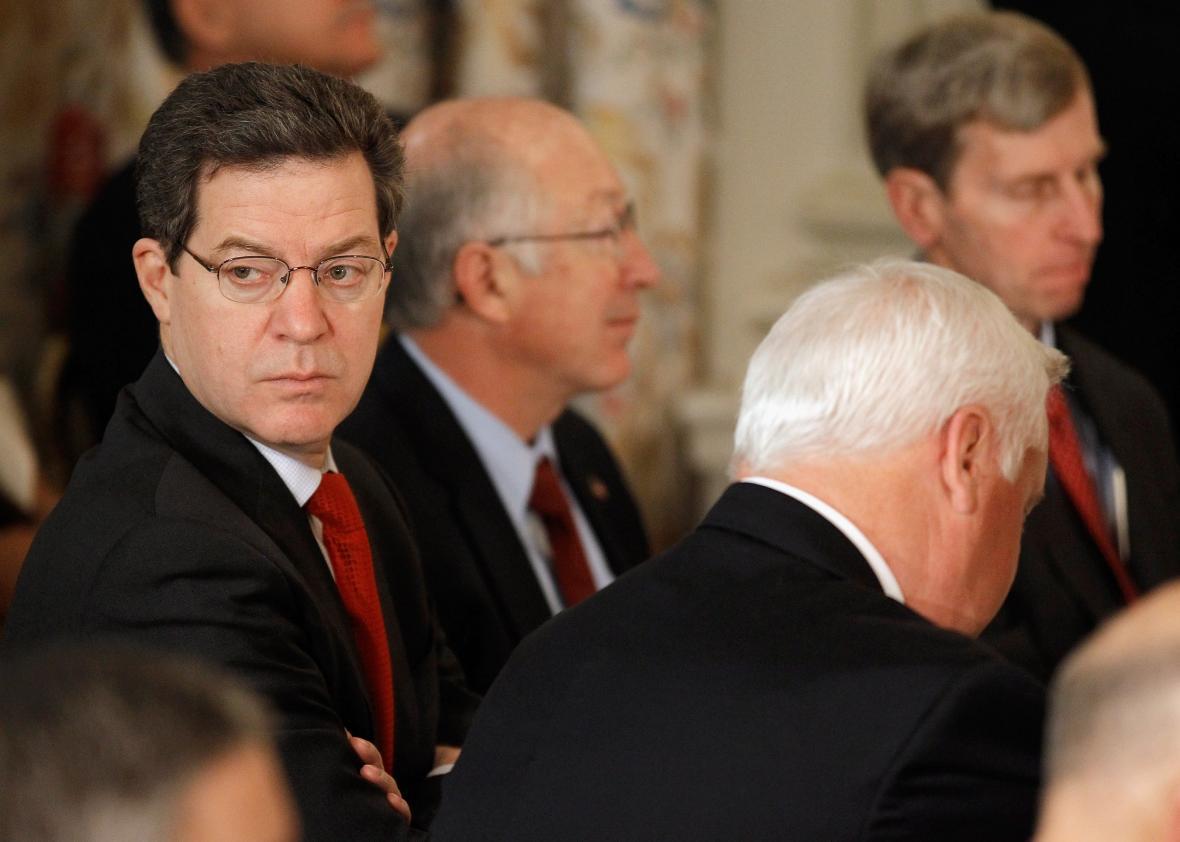In the end, fewer than 10,000 voters decided whether Kansas State Senate President Stephen Morris would survive. They were pretty well-educated on the stakes. Morris, the leader of a rump of Republican moderates, had clashed with Gov. Sam Brownback over spending and taxes and whether the state would go along with federal policy. In March, Morris led a rebellion against Brownback’s proposed income tax cuts, because he worried about the state’s budget outlook. In May, Brownback got Morris to reverse himself, then vetoed an oil-gas trust fund bill that Morris had wanted.
If voters weren’t following that, they at least saw the ads. As Brent Wistrom reports, Morris moved $100,000 into a campaign to protect himself and every other member being targeted by conservative primary challenges. It was a rearguard effort against the Kansas Chamber of Commerce PAC, which had received $125,000 from Kansas’ Koch Industries and a lot more money besides, and David Koch’s Americans for Prosperity, whose local Kansas branch was helping the conservatives. By election day everybody knew that the primaries were faceoffs between Republicans who opposed AFP/Brownback tax policy and Republicans who favored it.
Team Brownback won. Morris lost by 4 percentage points, 4,969 to 4,635 votes, to state Rep. Larry Powell. A total of nine Republicans lost—nearly one-third of the GOP caucus. State Sen. Jean Schordof was a pretty typical victim. She was challenged by Wichita city councilman Michael O’Donnell, who told reporter Dion Lefler that the incumbent “doesn’t want to do anything to stop Obamacare.”* Schordof outraised O’Donnell, $115,000 to $72,000, but the Kansas Chamber PAC spent $36,000 to help the challenger, more than eight times as much as a teacher’s union spent to help Schordof. So O’Donnell won, and won easy—2,745 votes to 1,897 votes, in a district that’s home to around 70,000 people.
I bring all of that up just to demonstrate how far money can go in a small state election. If the Kansas Chamber PAC gives a presidential campaign $36,000, it’s a drop in a waterfall. But in a state Senate race? Michael O’Donnell got one vote for every $13 the Chamber PAC spent. Low turnout and high partisan intensity against the mods let smart, well-funded candidates take over the upper House of a state legislature.
*Correction, Jan. 30, 2017: This post originally misspelled Dion Lefler’s last name. Wichita was also misspelled.
